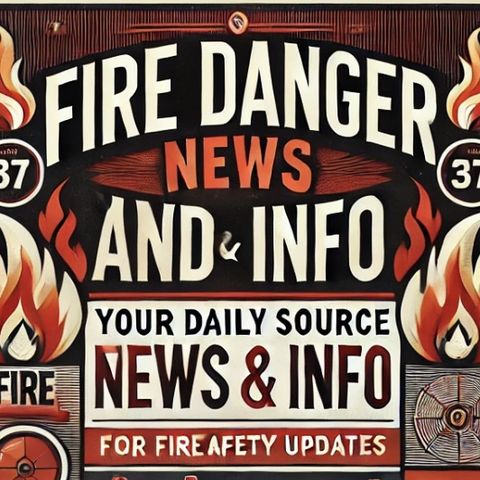Unleashing the Power of Fire Science: USGS Leads the Charge Against Wildfires in the West

Scarica e ascolta ovunque
Scarica i tuoi episodi preferiti e goditi l'ascolto, ovunque tu sia! Iscriviti o accedi ora per ascoltare offline.
Unleashing the Power of Fire Science: USGS Leads the Charge Against Wildfires in the West
Questa è una trascrizione generata automaticamente. Si prega di notare che non è garantita la completa accuratezza.
Descrizione
With wildfires increasing in frequency and intensity across the Western United States, the importance of advanced fire science has never been more critical. The U.S. Geological Survey (USGS) is at...
mostra di piùWildfires pose significant threats to communities, ecosystems, and wildlife, and their impacts are magnified by climate change. Rising temperatures, prolonged droughts, and changes in land use patterns contribute to more severe fire seasons, making wildfire management a pressing concern. The USGS Wildland Fire Science program plays a pivotal role in addressing these challenges by providing valuable data and tools to fire managers and decision-makers.
One of the key areas of focus for the USGS is understanding fire behavior and the factors that influence it. By studying how different environmental conditions, such as wind, humidity, and vegetation, affect the spread and intensity of fires, scientists can develop models to predict fire behavior more accurately. These insights are crucial for designing effective firefighting strategies and planning controlled burns to mitigate future risks.
Satellite imagery and remote sensing technologies are among the powerful tools used by USGS researchers to monitor wildfires in real-time. These technologies help in mapping fire perimeters, assessing the extent of burned areas, and identifying hotspots that require immediate attention. This information is crucial for emergency responders and helps allocate resources more efficiently, ultimately saving lives and properties.
Moreover, the USGS examines the ecological impacts of wildfires on landscapes and biodiversity. Fire plays a natural role in many ecosystems, but the increasing frequency and severity of wildfires can disrupt ecological balances. By studying post-fire recovery and regenerating habitats, USGS researchers can guide restoration efforts and support the resilience of affected ecosystems.
Collaboration is a cornerstone of the USGS Wildland Fire Science program. Working in partnership with other federal and state agencies, as well as academic institutions and international organizations, USGS brings together a wealth of expertise to tackle the complex challenges of wildfire management. These collaborations foster knowledge exchange and innovation, ensuring that fire management strategies are based on the best available science.
Through its comprehensive research and technological advancements, the USGS Wildland Fire Science program is making a substantial difference in the fight against wildfires in the Western United States. As climate change continues to influence fire dynamics, the need for informed and adaptive management strategies becomes increasingly urgent. By staying at the cutting edge of fire science, the USGS is helping to protect communities, preserve natural resources, and enhance the resilience of our landscapes in the face of this growing threat.
For more information on how USGS science is contributing to wildfire management and resilience, visit the USGS Wildland Fire Science webpage.
Informazioni
| Autore | QP-4 |
| Organizzazione | William Corbin |
| Sito | - |
| Tag |
Copyright 2024 - Spreaker Inc. an iHeartMedia Company

Commenti